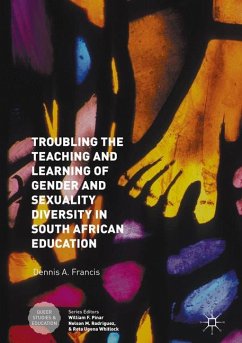
Transformation in Higher Education
Global Pressures and Local Realities
Herausgegeben: Cloete, Nico; Maassen, Peter; Fehnel, Richard; Moja, Teboho; Gibbon, Trish; Perold, Helene
Versandkostenfrei!
Versandfertig in 6-10 Tagen
76,99 €
inkl. MwSt.
Weitere Ausgaben:

PAYBACK Punkte
38 °P sammeln!
At the beginning of the 1990s the world was watching with anxiety at South Africa. Would the country be able to get rid of the despicable apartheid regime without bloodshed? Could a civil war be avoided? And would it be possible to develop a democratic society without having to build up a whole new set of social institutions? The latter concern certainly referred to the educational sector that was steered at each level by a number of separate Ministries of Education, i. e. one for each identified race group. Given the developments in other countries in the region as well as elsewhere in the wo...
At the beginning of the 1990s the world was watching with anxiety at South Africa. Would the country be able to get rid of the despicable apartheid regime without bloodshed? Could a civil war be avoided? And would it be possible to develop a democratic society without having to build up a whole new set of social institutions? The latter concern certainly referred to the educational sector that was steered at each level by a number of separate Ministries of Education, i. e. one for each identified race group. Given the developments in other countries in the region as well as elsewhere in the world the prospects were not too hopeful. In addition, many especially white South Africans left the country the weeks before the first elections, and the stories of violence and contradictions between the various political groups in the country dominated for a while the international press' coverage of the pre-94-election situation. However, ten years after the first democratic elections in 1994 it is fair to say that South Africa has gone through a far-reaching transformation that is characterised by a remarkably low level of political violence. The general impression of the transformation suggests that the country has managed to change rather smoothly most of its social institutions, without dramatically affecting the continuity in the operations and performance of these institutions. This also refers to higher education.














